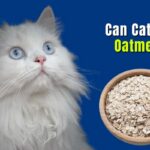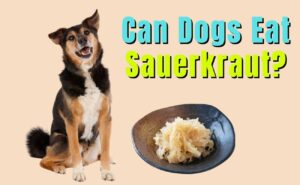When it comes to our beloved pets, their health and well-being are always at the forefront of our minds. As dog owners, we often wonder about the safety of various foods and ingredients. One common question that arises is: are poppy seeds bad for dogs? In this blog, we will delve into the potential risks of poppy seeds for dogs, discuss symptoms of toxicity, and offer guidance on what to do if your dog consumes poppy seeds.
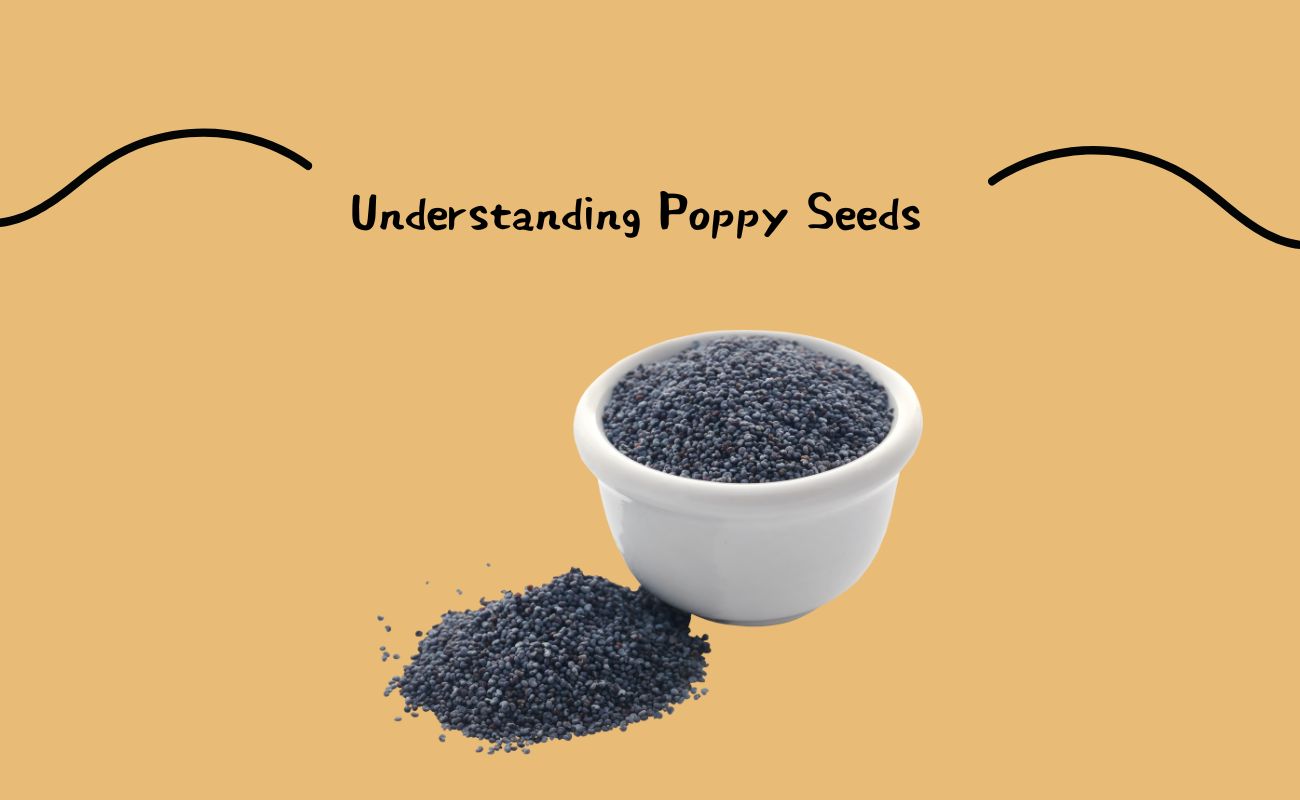
Understanding Poppy Seeds
Poppy seeds come from the opium poppy plant, scientifically known as Papaver somniferous. These tiny seeds are commonly used in baking and cooking, adding a unique flavor and texture to a variety of dishes. While poppy seeds themselves are not highly toxic, they contain alkaloids like morphine and codeine, which can pose health risks to dogs.
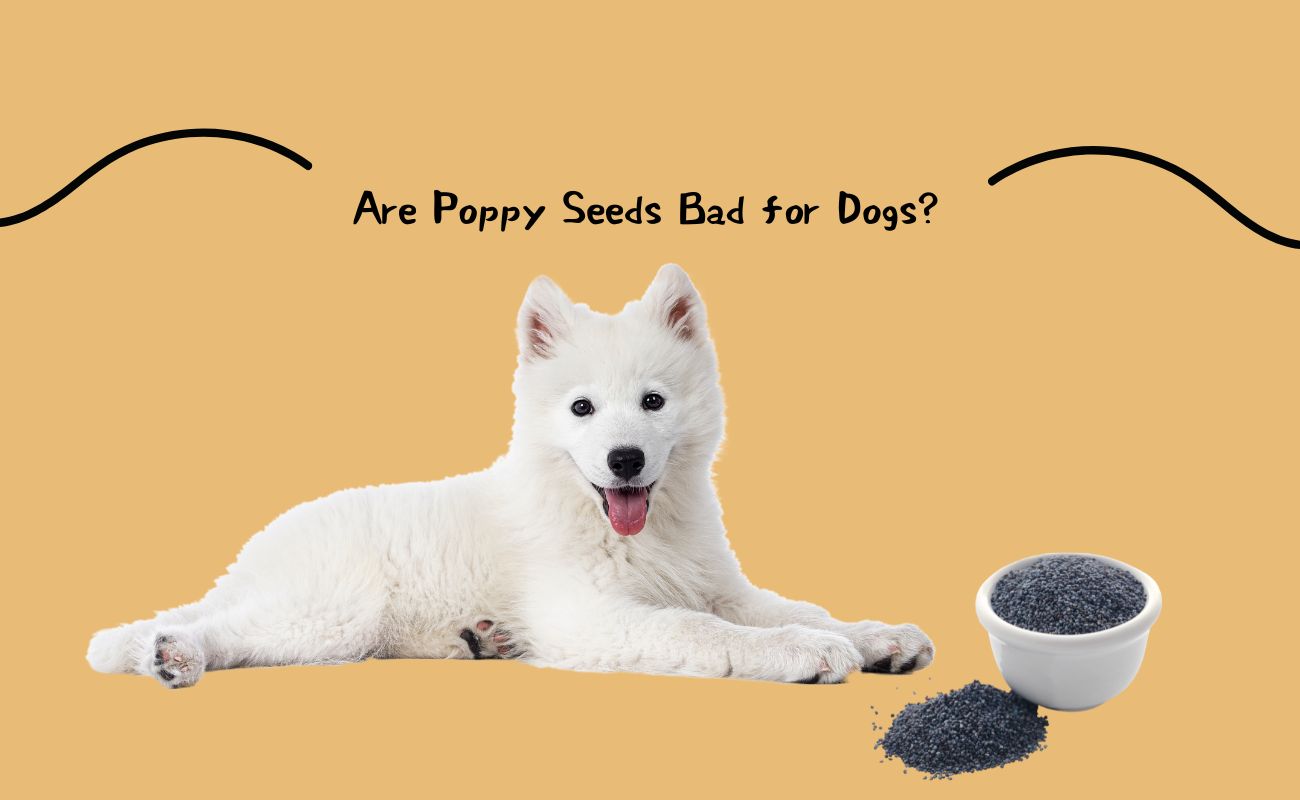
Are Poppy Seeds Bad for Dogs?
The short answer to the question are poppy seeds bad for dogs is yes, they can be. Although the seeds contain very low levels of opiates, these substances can be harmful to dogs even in small quantities. Dogs are more sensitive to these compounds compared to humans, and ingestion of poppy seeds can lead to toxicity. Therefore, it is best to avoid feeding your dog any food that contains poppy seeds.
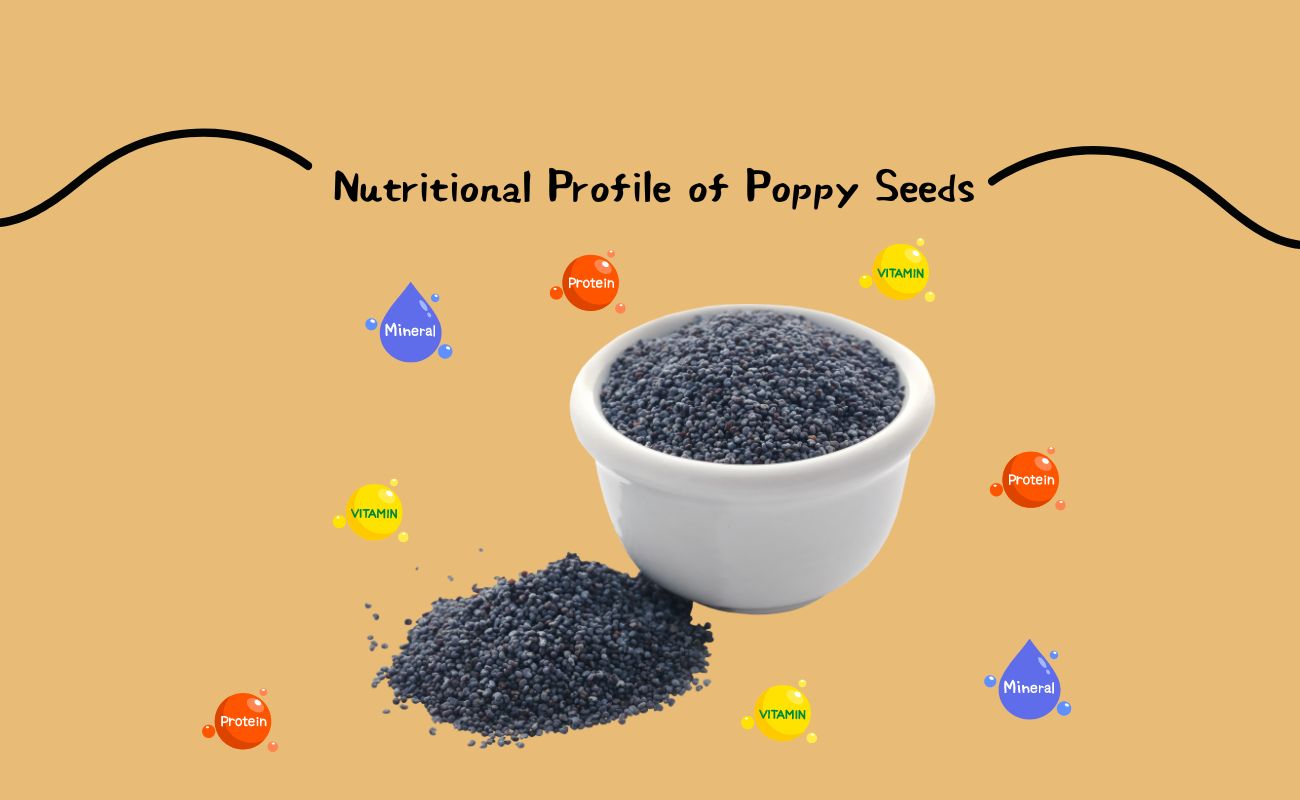
Nutritional Profile of Poppy Seeds
Here is a comprehensive table detailing the nutritional profile of poppy seeds per 100 grams:
| Nutrient | Amount per 100g |
|---|---|
| Calories | 525 kcal |
| Total Fat | 41.6 g |
| Saturated Fat | 4.5 g |
| Monounsaturated Fat | 5.97 g |
| Polyunsaturated Fat | 28.13 g |
| Cholesterol | 0 mg |
| Sodium | 26 mg |
| Total Carbohydrates | 28.13 g |
| Dietary Fiber | 19.5 g |
| Sugars | 2.99 g |
| Protein | 17.99 g |
| Vitamins | |
| Vitamin A | 0 IU |
| Vitamin C | 1 mg |
| Vitamin E | 1.77 mg |
| Vitamin K | 0 mg |
| Thiamin (B1) | 0.854 mg |
| Riboflavin (B2) | 0.1 mg |
| Niacin (B3) | 0.896 mg |
| Vitamin B6 | 0.247 mg |
| Folate (B9) | 82 µg |
| Minerals | |
| Calcium | 1438 mg |
| Iron | 9.76 mg |
| Magnesium | 347 mg |
| Phosphorus | 870 mg |
| Potassium | 719 mg |
| Sodium | 26 mg |
| Zinc | 7.9 mg |
| Copper | 1.63 mg |
| Manganese | 6.707 mg |
| Selenium | 13.5 µg |
This nutritional profile highlights that poppy seeds are a rich source of healthy fats, dietary fiber, protein, and several essential vitamins and minerals. However, it is crucial to remember that despite their nutritional benefits, poppy seeds are not safe for dogs and should be kept out of their diet.
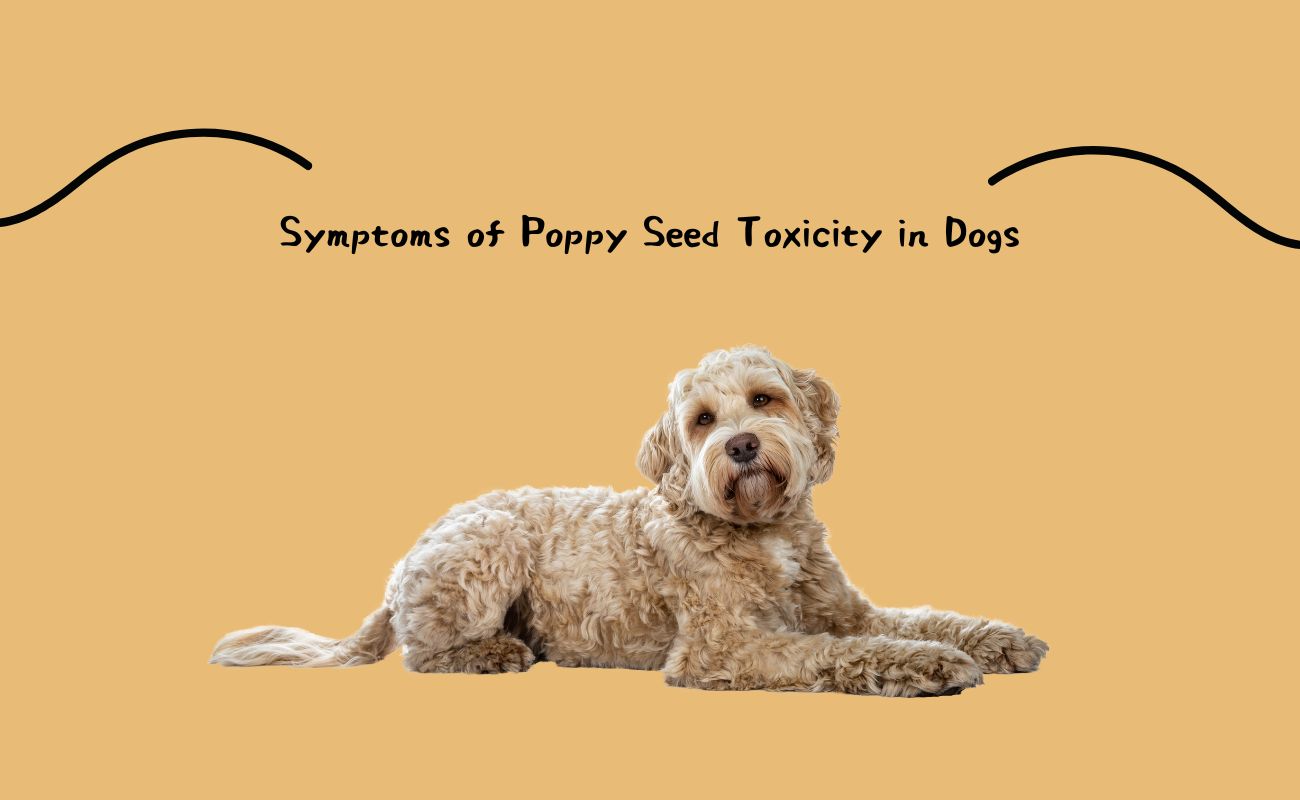
Symptoms of Poppy Seed Toxicity in Dogs
If a dog ingests poppy seeds, it is important to recognize the symptoms of toxicity. These can vary based on the amount ingested and the size of the dog. Common symptoms of poppy seed toxicity include:
- Lethargy: Dogs may appear unusually tired or weak.
- Depression: A dog may seem unusually down or disinterested in activities.
- Ataxia: This refers to a lack of coordination, causing the dog to stumble or walk unsteadily.
- Tremors: Involuntary shaking or muscle twitching can occur.
- Coma: In severe cases, dogs can fall into a coma.
If you notice any of these symptoms after your dog has ingested poppy seeds, it is crucial to seek veterinary care immediately.
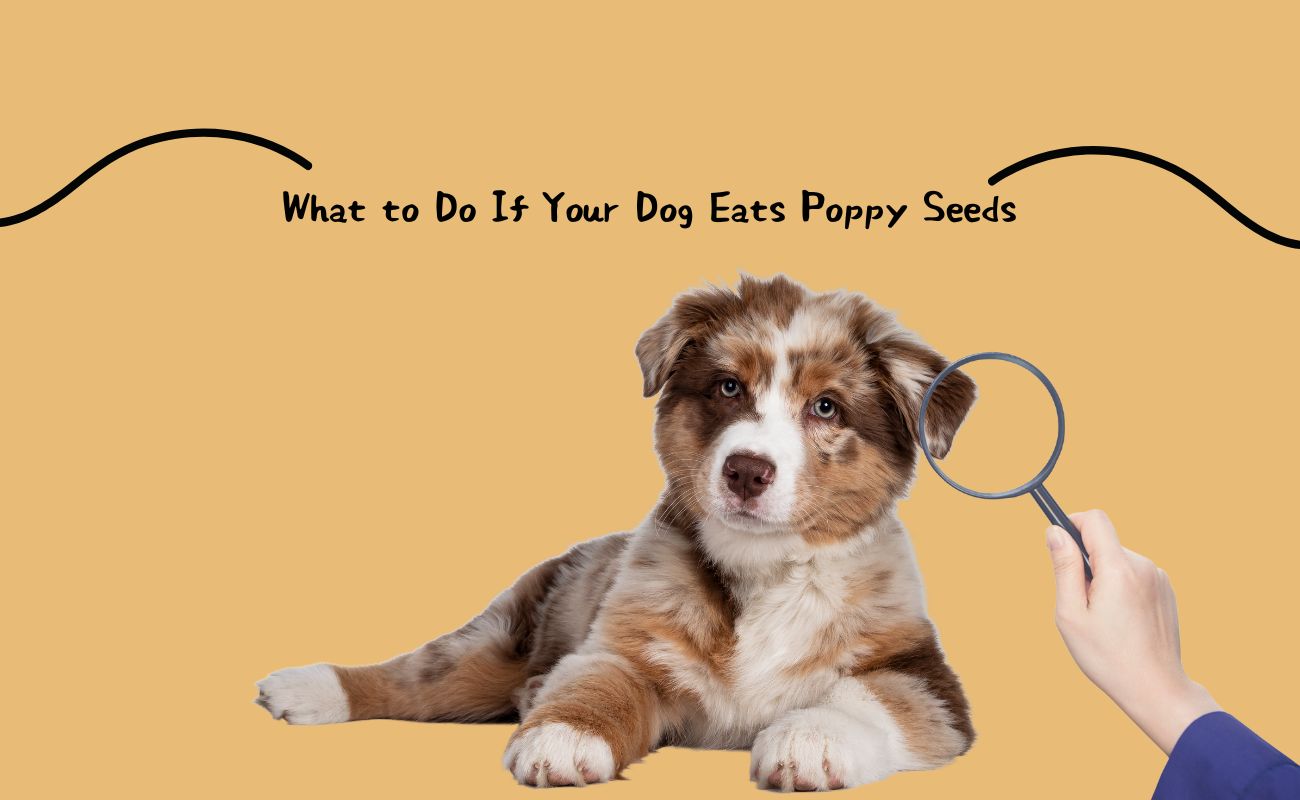
What to Do If Your Dog Eats Poppy Seeds
If your dog consumes poppy seeds, the first step is to remain calm and assess the situation. Try to determine how much your dog has eaten and contact your veterinarian for advice. In many cases, the vet may recommend bringing your dog in for an examination. Treatment for poppy seed ingestion typically involves supportive care, such as intravenous fluids, and medications to control symptoms like seizures or tremors.
Preventing Poppy Seed Ingestion
To ensure your dog stays safe, it is best to keep foods containing poppy seeds out of reach. This includes baked goods like bagels, muffins, and cakes, as well as any dishes that may use poppy seeds as a garnish. Additionally, educating family members and guests about the potential risks of poppy seeds can help prevent accidental ingestion.
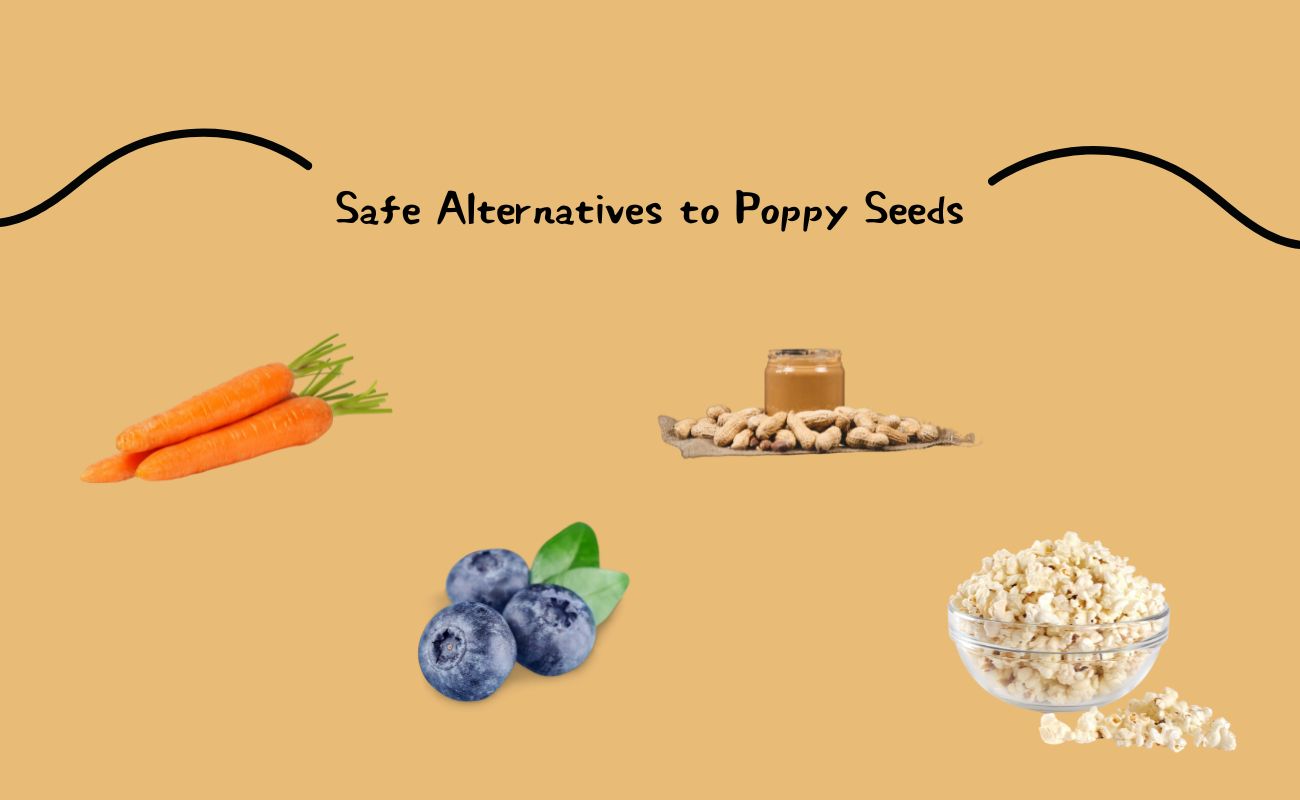
Safe Alternatives to Poppy Seeds
If you are looking for safe treats and foods for your dog, there are plenty of alternatives that pose no health risks. Some dog-friendly options include:
- Carrots: A crunchy and healthy snack that many dogs love.
- Blueberries: These are rich in antioxidants and can be a tasty treat.
- Peanut Butter: As long as it does not contain xylitol, peanut butter is a favorite for many dogs.
- Plain Popcorn: Unsalted and unbuttered popcorn can be a fun and safe treat in moderation.
Summary:
Are Poppy Seeds Bad for Dogs?
In conclusion, while poppy seeds are a common ingredient in many human foods, they are not safe for dogs. The presence of opiates, even in small amounts, can lead to serious health issues for our canine companions. Understanding the symptoms of toxicity and knowing what to do in case of ingestion can help protect your dog. By keeping foods with poppy seeds out of reach and opting for safer alternatives, you can ensure your furry friend stays healthy and happy. Always consult with your veterinarian if you have any concerns about your dog’s diet or health.




